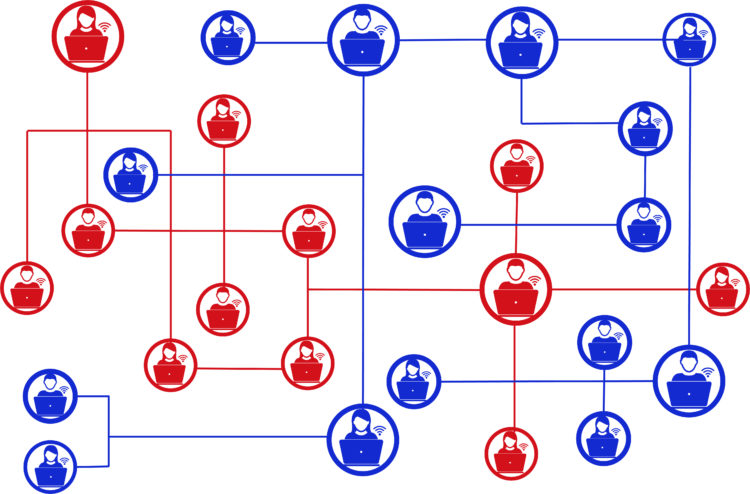The political divide between red and blue states seems to fracture more than our views about abortion rights, tax cuts, and healthcare. Research from an Olin Business School professor—with midterm elections just around the corner—shows we’re even wary about buying products online from sellers who might not share our political point of view.
An analysis of more than 550 million items sold by individuals on eBay in 2015 and 2016—transactions totaling $22.3 billion—shows we’re more likely to buy goods from someone we perceive comes from a similar political persuasion.
In other words, eBay buyers in Montana were more likely to buy a clock, a bookcase, or a treadmill from a Nebraskan than from a Californian.
“We were shocked because the location of a seller shouldn’t matter at all,” said Daniel Elfenbein, associate professor of strategy. “Shouldn’t we only care about whether the item is what we want and the likelihood of getting it sent to us as we expect?”
In fact, Elfenbein and his research colleagues Ray Fisman of Boston University and Brian McManus of the University of North Carolina at Chapel Hill discovered that the sales divide isn’t limited to the perceived political persuasion of buyers and sellers. To varying degrees, the researchers found similar trading imbalances in states based on religiosity, ethnicity, and other measures of “cultural distance.”
The authors laid out the research in a working paper entitled, “The Impact of Socioeconomic and Cultural Differences on Online Trade,” to be presented at the annual meeting of the American Economic Association in January 2019 in Atlanta.
The researchers said the divisions persisted even when the researchers controlled for population differences among states and perceived “taste preferences” among buyers and sellers. Would Californians and Floridians be more likely to trade surf gear? Would Montanans and Texans be more likely to trade hunting equipment?
“The paper was driven by a desire to understand whether these political differences were associated with the propensity of people to do business with each other—and then to rule out other explanations,” Elfenbein said. “No matter how hard we tried to rule out the idea that these political things matter, we still saw it as driving some of the trade patterns.”
The findings suggest that companies that do business across state lines should carefully consider whether their home base is meaningful for potential customers. “I would hope people in that position would have an informed opinion about whether touting their location is an advantage,” Elfenbein said. “I think marketing managers should have an informed view about whether touting their company’s location is an advantage or a disadvantage.”
Another surprise for the researchers: Buyers on eBay only know the seller’s city and state. From that, apparently, they’re extrapolating what they perceive to be the “cultural distance” between them, using that as a proxy for trustworthiness: Am I going to get what I expect to get from the seller?
The researchers did find, however, the likelihood of giving a seller negative feedback is higher when buyers are purchasing from states where the predominant political views are different from their own. It suggests that there is a tendency to be more sensitive to poor performance when they think the seller voted differently.
“There is no correlation between cultural similarity and buyer satisfaction, however, suggesting that differences in trustworthiness are not validated by actual transactions,” the researchers wrote in their paper.



